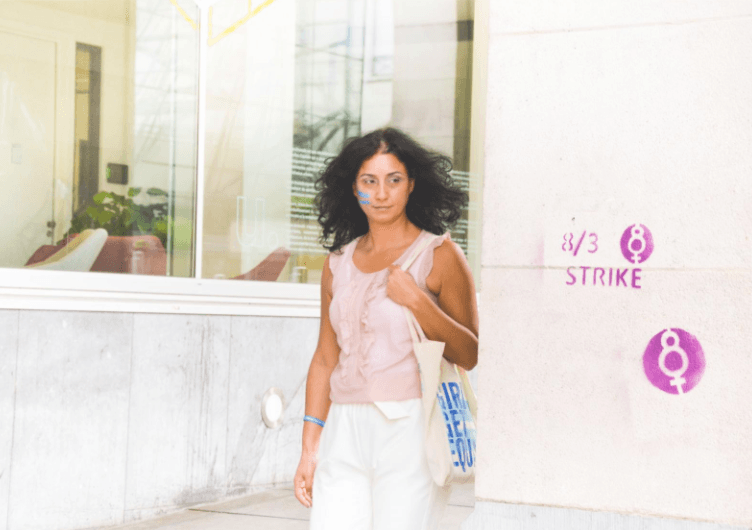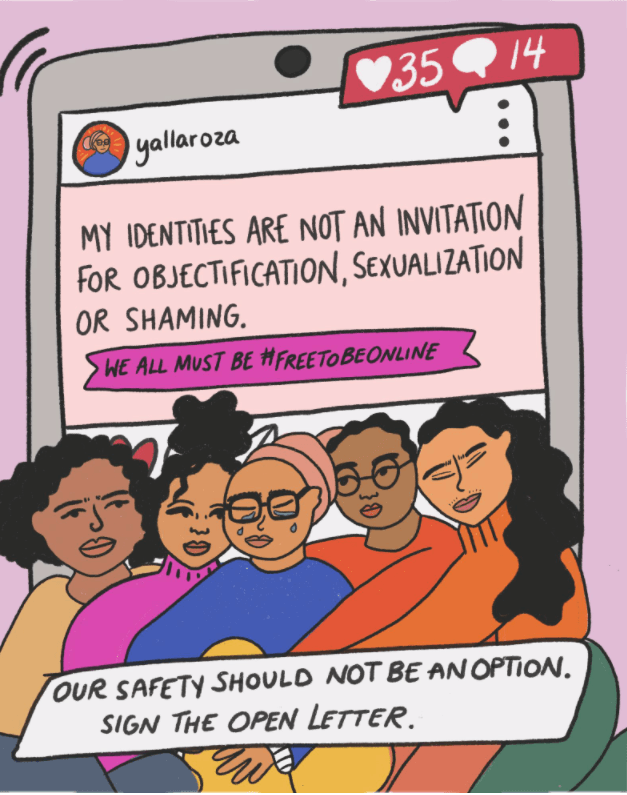Online harassment is silencing girls: EU and Member States can do more
25 November 2020Last Friday, the 20th November, was the 31st anniversary of a true milestone for children’s rights – the adoption of the Convention on the Rights of the Child. We definitely have progress to celebrate over those 31 years, but we also still have a way to go to achieve the fulfilment of all rights for all children, especially girls. Today is the International Day for the Elimination of Violence Against Women and I would like to highlight a particular challenge that especially girls and young women face these days: harassment and abuse online. Plan International recently published its report “Free to be online – Girls’ and young women’s experiences of online harassment”, which is staggering.
A shocking 58 per cent of girls who participated in the survey have experienced online harassment. Harassment has many different faces: Girls and young women are being put down for their opinions, being threatened with violence, being sent unwanted pornographic images. Like street harassment, online harassment is relentless, often psychologically damaging and can lead to actual physical harm. Half of the girls surveyed in the report say that they face harassment more often online than on the street, while perpetrators hide in the seeming anonymity of the internet.
These negative effects transcend from the online space to the ‘real’ world: 24 per cent, about one in four girls who have been harassed, are left feeling physically unsafe; 42 per cent lose self-esteem or self-confidence; 42 per cent feel mentally or emotionally stressed, and 18 per cent have problems at school.

The Covid-19 pandemic acted as an accelerator: like for most of us, life shifted online for many of the world’s children, girls and young women – at least for the lucky ones who are connected and have internet access! This shift was an important measure to protect us from the spread of the virus, whilst the so-called ‘shadow pandemic’ of harassment, abuse and violence against girls and women rages on. Plan International’s report found that harassment becomes exorbitantly worse as soon as girls express their opinions freely or engage in activism. As a result, girls become discouraged from voicing their opinions and participating in discussions online. 19 per cent of girls who were harassed very frequently said they use the social media platform less and 12 per cent just stopped using it.
Having been a vocal, outspoken feminist activist myself throughout my entire life, I should not be surprised to see that online harassment is deterring so many girls and young women from speaking their mind online. Social Media companies, governments and society as a whole need to use their power, expertise and resources to put an end to this harassment. Effective and accessible reporting mechanisms that target gender-based violence, for example, are the first step. Perpetrators must be held accountable. We need to take this issue seriously, or decision-makers, influential institutions and corporates are deliberately risking to lose the valuable input of millions of girls around the world. It is the governments’, the EU’s and the Member States responsibility to put women’s and girls’ needs ahead of the interests of social media platforms!
Like for most of us, life shifted online for many of the world’s children, girls and young women – at least for the lucky ones who are connected and have internet access.
There are great projects and ideas that have already emerged to counter online harassment and provide a safe online space, especially for girls. Together with girls and young women, Plan International has created a safe space online to discuss key gender issues: The Girls Out Loud groups! In Facebook private groups moderated by Plan International, girls can ask questions and discuss topics such as sexual health and rights, gender violence and self-confidence. Girls Out Loud is a project that originated in 2018 in Colombia and now exists in 16 countries around the world. Girls Out Loud groups are private and for girls and young women only (13-24 years old). Moderators do rigorous vetting of new members before they are admitted, and they work hard to make sure that the groups remain safe spaces. Plan International and the technology collective Feminist Internet have also developed ‘Maru’, an anti-harassment chatbot. Girls and young women who are witnessing or experiencing harassment online can ask the chatbot questions in multiple different languages, and Maru will answer and give expert advice on reporting mechanisms, staying safe online and links to resources.

Social media companies, governments, but also people like you and me, can take valuable lessons from the success of these two initiatives. When girls and young women feel safe and are enabled to express themselves online, we can break the status quo and hear views and opinions which were previously excluded from conversations. More moderators and staff to vet users of social media platforms and effective reporting mechanisms are crucial to create such safe spaces, as well as initiatives to educate girls and young women as well as other platform users about what they can do if they face harassment or witness it. If we do not create these safe spaces, we will continue to exclude the voices of many girls and contribute to silencing them!
Safe spaces encourage girls and young women to find their voices and to gain confidence, also offline, in ‘real’ life. Many girls and young women explain that through their participation in the Girls Out Loud groups, they were able to discuss certain issues with their families and friends which they were not confident to speak about before. We as a society can only benefit from more opinions, views and voices, especially as we learn to navigate our interconnected, fast-paced, and increasingly digitalised world! While initiatives like these can be parts of the solution, they are still not enough, and Governments and International Institutions must be held accountable to implement further measures.
If we do not create these safe spaces, we will continue to exclude the voices of many girls and contribute to silencing them.
It takes a will for change to improve spaces online, tackle gender-based violence online, and hear the voices of those previously excluded. The European Union is an actor that, through its history and multilateral nature can lead by example to end online abuse and harassment! The EU is putting forward its third Gender Action Plan (GAP III) today. For the first time, GAP III addresses digitalisation, recognising that girls must be able to enjoy online spaces and the opportunities they offer to unlock their full potential. Looking at the devastating effects of online harassment and the numbers of girls and young women driven off the platforms, it is clear that more needs to be done. The Convention on the Elimination of All Forms of Discrimination Against Women sets out that violence against girls and women is unacceptable, wherever it happens. Children’s rights, as defined in the now 31-year-old Convention on the Rights of the Child, including those of girls and adolescent girls, need to be respected in all spaces, whether offline or online.
Stand with girls and young women against online abuse and harassment, and sign the open letter of Plan International’s #FreeToBeOnline global campaign until December 10th.
Categories: Campaigns, Youth empowerment


